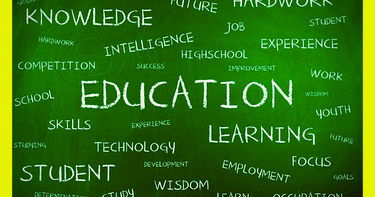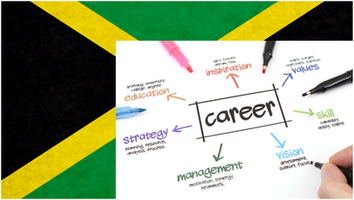
A Peep into the Educational Structure in Jamaica
Education being the backbone of any progressive society means we have to be cognizant of the vast importance of this. The government which does not invest in its people’s education, and ensures progress, from generation to generation; has missed the purpose of them being in power. Jamaica has a great structural educational system; however, we need to help people in society to realize the full potential they have. This is always needed, as many are still living within the framework of “Government being responsible for their livelihood”. The mindset has to be, “our future is our responsibility”, and the first to be improved is how we as a nation treat education.
Educational Structure in Jamaica Now
The Early Childhood education program incorporates Basic, Infant, and Preschool programs. They are so set-up to start children from ages 1-6 in learning. This structure has been in place since 1942 when the government saw the importance of early childhood education. To date, there are over 2,595 such facilities across Jamaica. They are categorized as Infant Schools, Basic Schools, Day Care Centers, and Special Education Centres.
Primary Educational Institutions
The Primary School system of education is fed from the Early Childhood institutions. They register children at ages 6-7 and they are taught the required subjects that enable them to transition into the Secondary educational system.
The Primary Schools’ system ensures the children are taught based on the curriculum set out by the Ministry of Education
Grade 1: Readiness Inventory
Grade 3: Assessment test in mathematics and Language Arts. This assessment test is governed by the National Assessment Program formulated by the Ministry of Education
Grade 4: Literacy and Numeracy tests
Grade 6: PEP (Primary Exit Profile) Assessment Test in Math, English, Social Studies (History, Geography, and Civic Studies), Communication Tasks and Science. PEP graduated from the Common Entrance Exam, and GSAT
Cost For Education in Jamaica
The formal years of education for our children whether in Infant Schools, Basic Schools, Day Care Centres, and Special Education Centers, are at a cost. For the six years of primary education, it is free. The Government has formulated a Bill that every child within the primary School system will be educated for free and compulsory.
The Primary School System
Many children on entering the Primary school system are already able to read and write, as these skills are taught within the Pre-education system. The curriculum entails English, Religious Education, Arts & Crafts, Math, Spanish, Physical Education, Computer Studies; although, Spanish and Computer Studies are only taught in some schools. This is because the other schools are not equipped with computers and a Spanish teacher. Many schools that have these facilities are fortunate to have Past Students’ Associations or are adopted by corporations that donate these types of equipment to the schools they are affiliated with.
In most primary schools, one class teacher usually teaches students all the subjects. According to a UNESCO document entitled "Education for all 2015 National Review Report: Jamaica", "some 96 percent of the teachers at this level are professionally trained with female [teachers] accounting for 88 percent of the staff complement. Most students transition from primary to secondary level education."
Between grades 1 and 3 students do between six and ten subjects depending on the schools. Between grades 4 and 6, most students will focus on five subjects, though after their Grade Six Achievement Exams in March each year, schools sometimes use the remaining school year to do other subjects like Art and Music. While the lecture method is used in some classes at some schools, most primary school teachers think students are too young for them to be taught by this method and instead opt to use more interactive approaches.
Students are taught from early to work in groups and teachers encourage students to commit a lot of information to memory. It is very common for primary school students in Jamaica to be required to recite daily, various poems, tables of multiplication (generally up to 12), tables of synonyms, and even mnemonics. Visual aids are used a lot to help in the teaching and learning process and it is very common to see the walls of primary school classrooms decorated with charts made by teachers or those bought in stores, that contain information that students need to know.
The primary school system in Jamaica is quite rigorous as students are given a lot of homework to do each day from as early as Grade 1 (age 5 or 6). Most students have at least two hours of homework to do each day and up to eight hours of homework on weekends. It is not uncommon for students to be punished by their teachers when homework assignments are not completed. In many instances, the parents are called when the assignments are not done. Students are tested regularly and generally ranked in their classes by the grades that they receive. Students are required to do three national exams in primary schools so a lot of pressure is placed on parents, the students, the teachers, and the schools.
The system has been changing as the Ministry of Education as Quoted in This JIS Report:
"The Ministry of Education, Youth and Information is on a mission to transform the education system into one that operates based on a ‘mass customization’ format, and not ‘generalized education’, which has been the tradition for decades."
https://jis.gov.jm/education-system-being-transformed
Secondary Education
On completion of the PEP, students are placed in their chosen Secondary or High Schools. They are placed based on the competency percentages which is the guide from the Ministry of Education. The Secondary School system is broken up into three groups:
Lower School
Upper School
Sixth Form
The lower school which comprises forms 1-3, serves to give the students the formal education in needed subjects.
Subjects
Mathematics,
English
Spanish
French
Integrated Science
Physics
Biology
Chemistry
History
Geography
Religious Education
Physical Education
Technical Drawing
Principles of Business
Food & Nutrition
Home Economics
These are just some of the subjects they are taught. The students are then given the option to decide if they want to do sciences or arts as it relates to their chosen careers. The full complement of subjects that are available to students are in total 21, however, they have the minimum amount of 8 as their choice for final exams, some will choose to do as many as 11 or 12, depending on their strengths in the subjects and what they want to pursue in the future.
Some schools place students in the form of entering the institution based on their strengths in particular subjects. This is felt they will excel in these subjects.
Upper School comprised forms 4-5. This is where students will start choosing the subjects they want to do in the Caribbean Examination Council Examination or CSEC. This is equivalent to the British exams of the O’Levels. The CSEC is a Caribbean exam, as Jamaica and countries in the Caribbean formulated their final exams for students. This is accepted internationally.
Sixth Forms are divided into Upper and Lower Sixth Forms, as Grades 12 & 13. During these two years, students strive to accomplish the highest in their chosen 5 subjects they have passed in the CSEC exams. They will take the CAPE Caribbean Advanced Proficiency Exams that are equivalent to the British A Levels.
Not all High Schools have a Sixth Form, so students who want to do CAPE either transfer to a High School that has a Sixth Form at Upper School Form 5, and set the required exams, or they register for the chosen Sixth Form closest to them to do the CAPE Exams.
Tertiary Level Education in Jamaica
Entering into the Tertiary level of Institutions in Jamaica is dependent on students passing their CAPE exams. Some students on completing their Upper School education in High School and have passed the minimum of 5 subjects inclusive of Maths and English will apply to attend a Tertiary level Institution.
Generally, A-Levels or CAPE examinations are required to enter the nation's universities. One may also qualify after having earned a 3-year diploma from an accredited post-secondary college. The word college usually denotes institutions that do not grant at least a bachelor's degree. Universities are typically the only degree-granting institutions; however, many colleges have been creating joint programs with universities, and thus can offer some students more than a college diploma.
A few universities in the United States have extension programs in various parts of Jamaica. Most of the students who enroll in these part-time programs are working professionals who want to continue their education without having to relocate closer to the nation's universities.
Listings of Tertiary Level Institutions in Jamaica
The University of the West Indies at Mona (a regional institution)
University of Technology (U-Tech)
Excelsior Community College (EXED)
Edna Manley College of the Visual and Performing Arts (an artistic conservatory)
All American Institute of Medical Sciences, Black River, St. Elizabeth (AAIMS)
Teacher training colleges
Shortwood Teachers' College, Shortwood, St. Andrew
Bethlehem Teachers' College, Malvern, St. Elizabeth
Moneague College, Moneague, St. Ann
Church Teachers' College, Mandeville, Manchester
Sam Sharpe Teachers' College, Montego Bay, St. James
St. Joseph's Teachers College, St. Andrew
Catholic College of Mandeville, Mandeville, Manchester
Saint John's College (school of nursing)
14 community colleges
1 dental auxiliary school
1 vocational training development institute
29 vocational training centers, and
6 human employment and resources training (HEART) vocational training institutions





